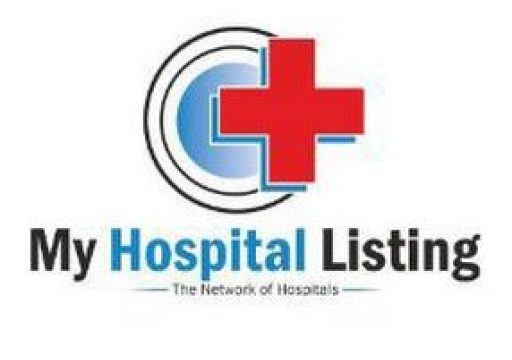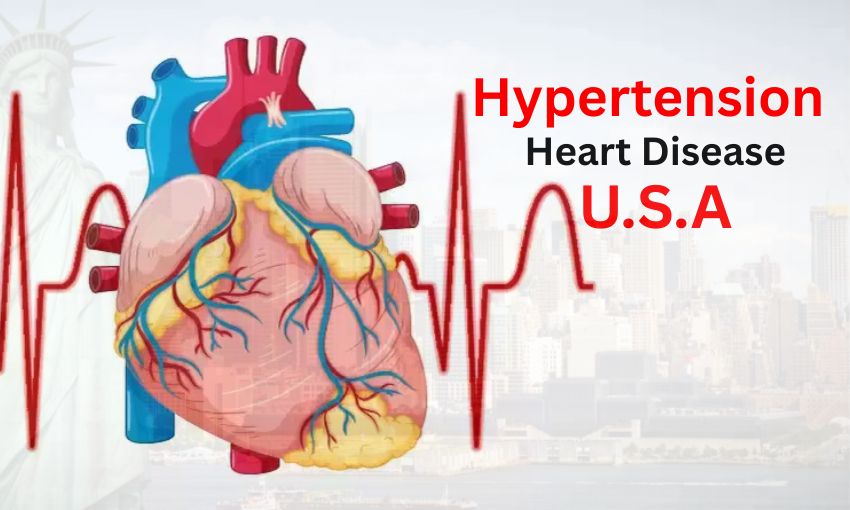Introduction
Heart disease is one of the leading causes of death in the United States, and Hypertension Heart Disease in USA is one of its most common and preventable forms. Hypertension, also known as high blood pressure, silently damages blood vessels and the heart over time. According to the Centers for Disease Control and Prevention (CDC), nearly 120 million Americans have hypertension, but almost half are unaware of it.
Hypertension is often called the “silent killer” because it rarely shows clear symptoms until serious complications occur. Left untreated, it can lead to heart attack, stroke, kidney failure, or heart failure.
In this blog, we’ll explain everything about hypertension and heart disease in the USA—its types, causes, symptoms, stages, treatment options, and prevention. We’ll also discuss key terms like hypertension ICD code, hypertension medical abbreviation, and the difference between hypertension level 2 and mild hypertension.
Let’s understand why hypertension is high blood pressure, how it affects the heart, and what steps you can take to stay healthy.
What Is Hypertension? (Hypertension Definition)
Hypertension definition: Hypertension is a chronic condition where the force of blood against the artery walls is consistently too high. This puts extra strain on your heart and arteries, leading to hypertension heart disease and other cardiovascular complications.
The hypertension medical abbreviation commonly used by doctors is “HTN.” It helps record and communicate blood pressure–related information quickly in medical charts.
Normal vs. High Blood Pressure Numbers:
| Category | Systolic (mm Hg) | Diastolic (mm Hg) |
| Normal | Less than 120 | Less than 80 |
| Elevated | 120–129 | Less than 80 |
| Hypertension Stage 1 | 130–139 | 80–89 |
| Hypertension Level 2 | 140 or higher | 90 or higher |
| Hypertension Crisis | Higher than 180 | Higher than 120 |
These hypertension stages help doctors determine the severity and recommend proper hypertension treatments.
Hypertension Is High Blood Pressure
Simply put, hypertension is high blood pressure. It means the blood flowing through your arteries exerts too much pressure on their walls. Over time, this causes arteries to become stiff and narrow, increasing the risk of hypertension cardiovascular disease and other heart problems.
Persistent high readings can cause hypertension of the heart, leading to enlargement of the heart muscle, irregular heartbeat, and even heart failure.
Causes and Risk Factors (Hypertension Reasons)
Several factors contribute to high blood pressure causes in Americans. Most cases are due to lifestyle habits and genetic tendencies.
Common Hypertension Reasons:
- Unhealthy diet: Too much salt, saturated fats, and processed foods
- Obesity: Excess body weight strains the heart
- Lack of exercise: Sedentary lifestyle reduces heart efficiency
- Smoking and alcohol: Both elevate blood pressure levels
- Stress: Chronic stress triggers hormone spikes that raise blood pressure
- Genetics: Family history plays a big role
- Medical conditions: Diabetes, kidney disease, and thyroid issues
- Hypertension while pregnant: Some women develop temporary or long-term hypertension during pregnancy, known as gestational hypertension.
Understanding these hypertension reasons can help you modify your habits and reduce the risk of developing hypertension heart disease.
Types of Hypertension Heart Disease
Hypertension affects the body in several ways. The hypertension heart condition develops slowly as the heart works harder to pump blood through narrow arteries.
1. Coronary Artery Disease (CAD)
High blood pressure damages the arteries that supply the heart, leading to plaque buildup and blockages.
2. Left Ventricular Hypertrophy (LVH)
The heart’s left ventricle thickens due to increased pressure, a major sign of hypertension of the heart.
3. Heart Failure
Over time, the heart weakens, unable to pump blood efficiently.
4. Aneurysm and Stroke
Uncontrolled hypertension blood pressure symptoms can lead to ruptured arteries in the brain or body.
5. Kidney Damage
The kidneys suffer from high blood flow pressure, often leading to chronic kidney disease.
Hypertension Signs and Symptoms
Hypertension often shows no early warning signs, which makes regular checkups vital. However, when symptoms do appear, they may include:
- Severe hypertension headache
- Dizziness or blurred vision
- Shortness of breath
- Chest pain or tightness
- Fatigue or irregular heartbeat
- Nosebleeds in severe cases
- Numbness in hands or legs
These hypertension symptoms indicate that the blood pressure may be dangerously high or approaching a hypertension crisis.
Hypertension Crisis: When to Seek Help
A hypertension crisis is a medical emergency. It occurs when blood pressure rises above 180/120 mm Hg. Immediate medical care is necessary to prevent heart attack, stroke, or organ damage.
If you experience chest pain, difficulty breathing, or vision changes, call 911 or go to the nearest emergency room immediately.
Hypertension Headache and Other Warning Signs
A hypertension headache typically feels like a pulsating pain on both sides of the head and often appears during a hypertensive emergency. It is often accompanied by dizziness, nausea, or blurred vision.
While headaches can have many causes, those related to hypertension high blood pressure should not be ignored, especially if blood pressure readings are high.
Hypertension While Pregnant
Hypertension while pregnant is a serious condition that can affect both the mother and the baby. It is also known as gestational hypertension and usually occurs after the 20th week of pregnancy.
If untreated, it can lead to preeclampsia, which causes damage to vital organs. Pregnant women should regularly monitor their blood pressure numbers and consult a gynecologist immediately if readings are high.
Hypertension Medications and Treatments
There are several hypertension treatments available in the U.S. today. These treatments aim to lower blood pressure, protect the heart, and reduce complications.
1. Lifestyle Modifications
- Adopt a high blood pressure diet rich in fruits, vegetables, and whole grains.
- Reduce sodium intake (less than 2,300 mg per day).
- Maintain a healthy weight.
- Exercise regularly.
- Quit smoking and limit alcohol.
2. Hypertension Medications
Doctors prescribe different high blood pressure drugs based on the individual’s condition:
- ACE inhibitors (like Lisinopril)
- Beta-blockers (like Metoprolol)
- Calcium channel blockers (like Amlodipine)
- Diuretics (help remove excess sodium and water)
These hypertension medications are highly effective in managing hypertension heart disease and improving quality of life.
Hypertension ICD Codes and Medical Reference
In the U.S. healthcare system, diseases are categorized by ICD codes for billing and research.
- Hypertension ICD 10 code: I10
- Hypertension ICD code: Used by doctors and hospitals to record diagnosis.
- Hypertension medical abbreviation: HTN
These medical codes help healthcare providers track trends and outcomes related to hypertension cardiovascular disease across the country.
Hypertension Levels and Stages in the U.S.
As per the American Heart Association (AHA), there are multiple hypertension stages:
- Stage 1 Hypertension: Systolic 130–139 / Diastolic 80–89 mm Hg
- Hypertension Level 2: Systolic ≥140 / Diastolic ≥90 mm Hg
- Hypertensive Crisis: Systolic ≥180 / Diastolic ≥120 mm Hg
People with hypertension level 2 often require both medication and lifestyle changes for control.
High Blood Pressure Diet and Prevention Tips
Following a proper high blood pressure diet is one of the most effective ways to manage and prevent hypertension.
🥗 Recommended Foods:
- Fresh fruits and vegetables
- Lean proteins like fish and chicken
- Whole grains
- Low-fat dairy
- Foods rich in potassium (bananas, spinach)
🚫 Foods to Avoid:
- Salted snacks and processed foods
- Red meat and fried items
- Sugary drinks and alcohol
This diet pattern, known as the DASH diet (Dietary Approaches to Stop Hypertension), is widely recommended by U.S. doctors for controlling high blood pressure.
Hypertension Treatments in the USA: Modern Advances
Modern hypertension treatments in the U.S. include digital blood pressure monitors, remote patient monitoring, and AI-assisted diagnostics. U.S. hospitals also use personalized treatment plans and telehealth consultations to help patients control hypertension heart disease effectively.
Many patients also use wearable smartwatches that track hypertension blood pressure symptoms and send alerts for abnormal readings.
Conclusion
Hypertension heart disease remains one of the top public health concerns in America, but it’s also one of the most preventable. By understanding hypertension signs and symptoms, monitoring your high blood pressure numbers, and following medical advice, you can lead a long, healthy life.
Remember, hypertension is high blood pressure, and early action makes all the difference. Eat well, stay active, and keep your blood pressure under control.
10 FAQs on Hypertension and Heart Disease in the USA
- What is hypertension?
Hypertension is a condition where blood pressure remains consistently high, putting strain on the heart and arteries. - What is the hypertension medical abbreviation?
The common abbreviation is HTN. - What is the hypertension ICD 10 code?
The ICD 10 code for hypertension is I10, used for diagnosis and billing in U.S. healthcare. - What are the main hypertension stages?
Stage 1 (130–139/80–89 mm Hg), hypertension level 2 (≥140/90 mm Hg), and hypertensive crisis (≥180/120 mm Hg). - What are hypertension symptoms?
Headache, fatigue, dizziness, and chest pain are common hypertension signs and symptoms. - What is hypertension while pregnant?
It’s high blood pressure during pregnancy, also known as gestational hypertension. - What are effective hypertension treatments?
Lifestyle changes, hypertension medications, and a high blood pressure diet are most effective. - What causes high blood pressure?
Unhealthy diet, stress, lack of activity, obesity, and genetics are key high blood pressure causes. - What foods help reduce hypertension?
Fruits, vegetables, whole grains, and low-salt foods are best for controlling hypertension heart problems. - How can I prevent hypertension heart disease?
Eat healthy, exercise daily, avoid smoking, manage stress, and monitor high blood pressure numbers regularly.

